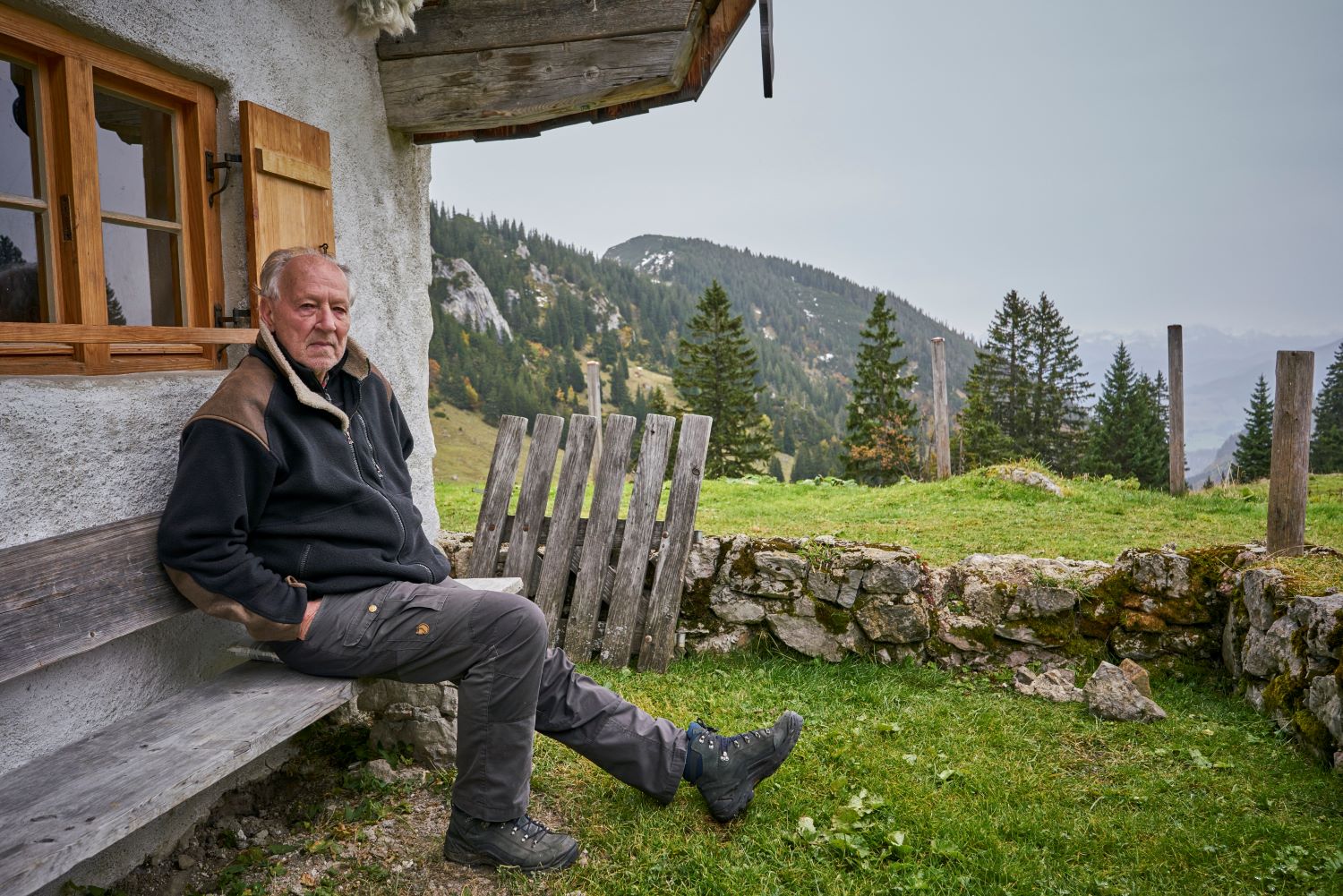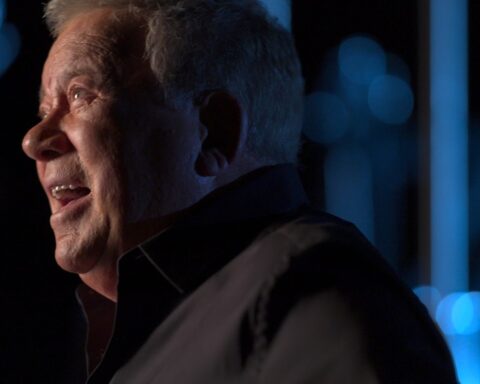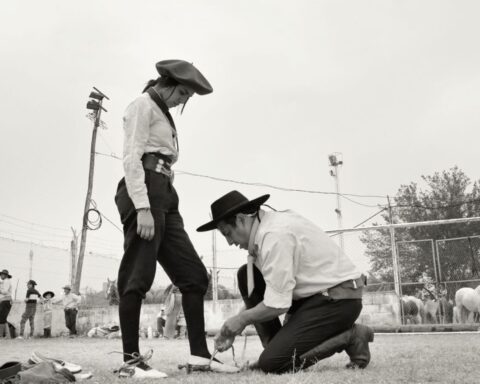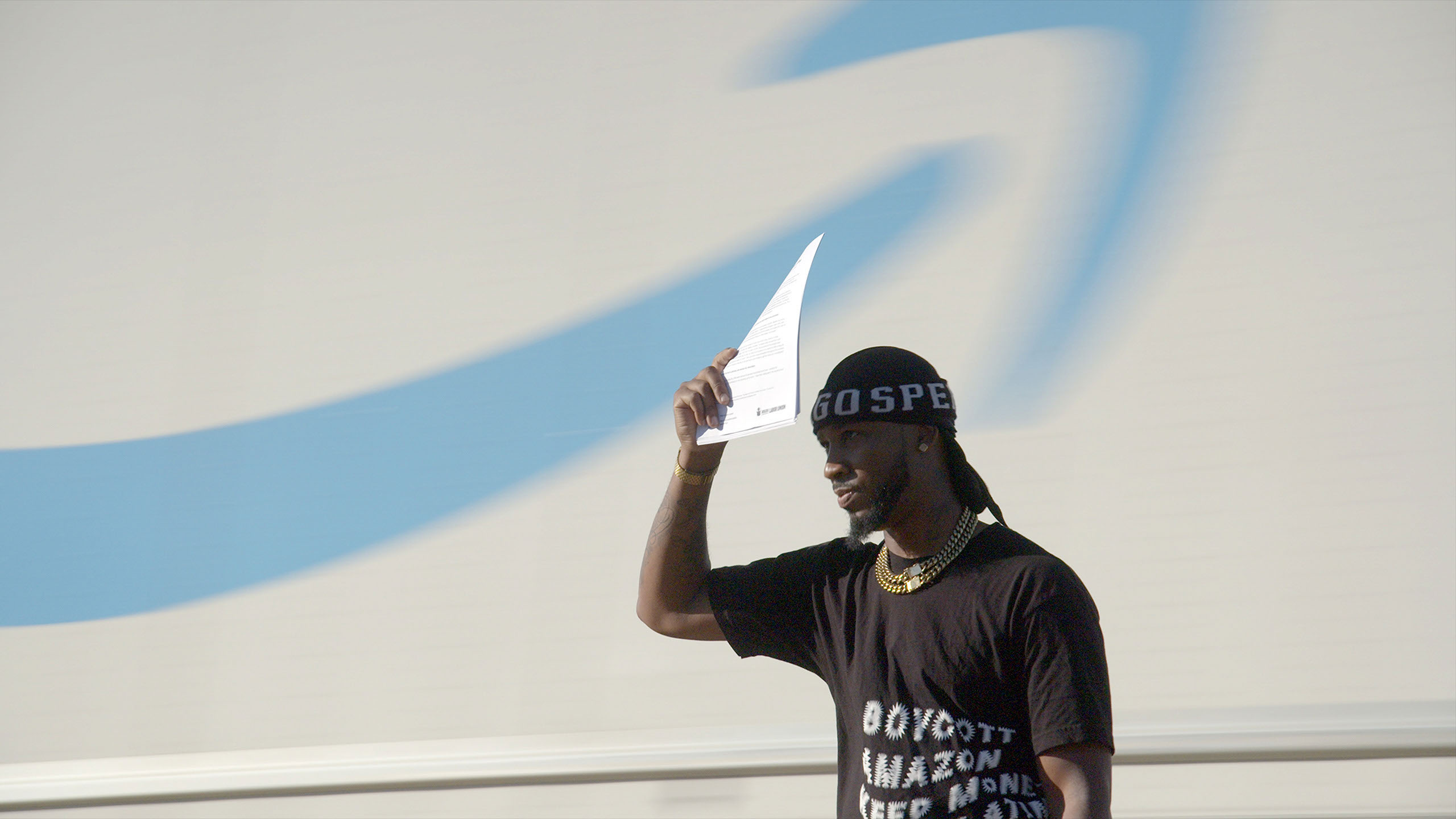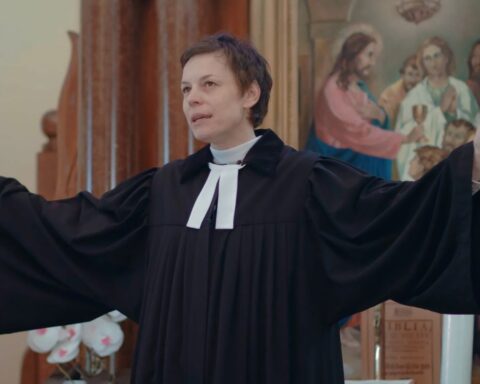Werner Herzog: Radical Dreamer
(Germany/UK, 102 min.)
Dir. Thomas von Steinaecker
“When you are really flying far, you are not a human any more. You transform yourself. You transmute yourself into a bird. I really, really wanted to fly, and I would give a lot if I could fly,” says filmmaker Werner Herzog in Radical Dreamer. Herzog then shifts his body, presenting a more comfortable yet assured poise in the frame. He continues the interview with director Thomas von Steinaecker. He stares into the camera, deadly serious, and says, “It’s an injustice. It’s an injustice in my life that I haven’t become an athlete. It’s an injustice of nature that we do not have wings.”
It truly is an injustice to the world that Werner Herzog doesn’t have wings, but he soars nevertheless. Few filmmakers continually let audiences reach new heights like Herzog does. Werner Herzog: Radical Dreamer chronicles the varied, eclectic, and singular body of work that affords him an extraordinary wingspan. The film looks at the shoddy early days of post-war German cinema that made the context for Herzog’s output so radical. Back when he was a boy, German films mostly featured mountain movies with maidens singing in the Alps simply because the cities still suffered the scars of war.
After having numerous works rejected in his youth and becoming a minor mockery for filming an ensemble of dwarfs, Herzog tapped into a new wave of German cinema that included Margarethe von Trotta, Rainer Werner Fassbinder, Volker Schlöndorff, and Wim Wenders. The latter two join the chorus of talking heads in Radical Dreamer along with the likes of Nicole Kidman, Chloé Zhao, Patti Smith, and Christian Bale. The talking heads consider Herzog’s spirit and significance as the film zips through legendary/notorious productions like Fitzcarraldo and Aguirre, the Wrath of God to documentaries that pushed the art form like Grizzly Man and Cave of Forgotten Dreams. Herzog, Radical Dreamer makes clear, has no equal.
Of Shoes and Vision
Radical Dreamer charts a typical birth to present trajectory of Herzog’s life. The filmmaker reflects upon his humble upbringing. With interviews shot in the Alps, evoking a perfectly Herzoggian sense of awe, the director admits that he appreciated growing up without a father. He also credits his mother’s strength for raising him and his brother with whatever she had in the cupboard. Some days, Herzog explains, they just had to wait for it to be replenished. But he adds that she’d have let them eat a piece of her if they could.
Perhaps this appetite illuminates why Herzog eventually devoured his own shoe. The shoe-eating, chronicled in Les Blank’s appropriately titled film Werner Herzog Eats His Shoe, appears in Radical Dreamer and shows how Herzog made good on his bet to scarf down some footwear if Errol Morris ever finished his film Gates of Heaven. Many audiences familiar with Herzog probably know this tidbit, and it never fails to entertain. However, one might not really appreciate how smart Morris and other filmmakers were for failing to make the same bet against Herzog’s movies. They might have been eating boots for days given the productions of Fitzcarraldo and Aguirre.
The making of the former, moreover, is the subject of Les Blank’s documentary Burden of Dreams. To put Fitzcarraldo’s chaotically epic production in the Amazon into perspective, the near Herculean, or perhaps Sisyphean, task of lugging a 320-ton steamship up the muddy hills of the jungle seems like one of its lesser burdens. Fans might most appreciate the glimpses of Mick Jagger and Jason Robards in original footage from Fitzcarraldo. These bits, also contained in Blank’s film, prove especially amusing when shit hits the fan once Klaus Kinski returned and brought his signature reign of terror to the production.
Lo and Behold, the Docs
When Radical Dreamer gets to Herzog’s documentaries, though, it feels like a Fitzcarraldo shoot. Even though the film notes that Herzog’s documentaries arguably do more to augment his popularity and significance, it doesn’t adequately credit Herzog for how much his documentaries evolved non-fiction filmmaking. While Herzog’s docs don’t have the same juicy origin stories as his dramas, they deserve equal consideration. If not more. Herzog reflects quickly on Lessons of Darkness, say, and notes that people accused him of aestheticizing tragedy. While he slyly chuckles that his film aged better than that criticism did, von Steinaecker doesn’t situate the work in the field it anticipated.
The same really goes for Grizzly Man. Radical Dreamer offers the intense moment in which Herzog listens to a recording of Timothy Treadwell’s death. Cinematographer Peter Zeitlinger tells how the shot of Treadwell’s friend, Jewel Palovak watching Herzog’s reaction in horror came of necessity. But Grizzly Man doesn’t really get enough credit here for opening up the potential for documentary. Herzog’s film exploded the poetic potential for non-fiction thanks to Herzog’s prophetic unselfconsciousness. For a documentary, Radical Dreamer is somewhat lacking in its consideration of the art of documentary. However, the segment on Herzog’s Oscar-nominated Encounters at the End of the World does that film justice.
It’s a lot of terrain to cover. Fans of the ’zog might be disappointed that Radical Dreamer includes more of the filmmaker’s appearance on The Simpsons than, say, docs like Fireball, Into the Abyss, Lo and Behold, and Into the Inferno. However, von Steinaecker’s interest in Herzog’s distinct voice—deep and intimidating, yet soft and curious—and his oft-parodied grandiose vernacular, offers an appropriately amusing window into the unique celebrity status that he enjoys. The best moments aren’t those in which Herzog shares insights about his process. The film soars—nay, flies—when he waxes philosophical and delivers the loony, deadpan prophesies that people love. The man knows how to please his audience.




